MEET OUR CODE_N CONTEST FINALISTS 2018: ixo Foundation from Switzerland
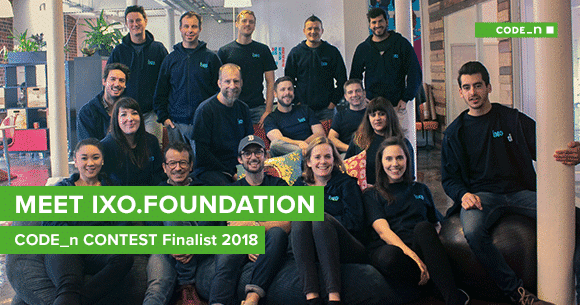
Every little bit counts. CODE_n CONTEST Finalist ixo Foundation has created a collaborative marketplace that changes how aid is delivered using blockchain technology. Their solution called ixo, the Blockchain for Impact, translates investments into impacts allowing anyone to contribute to the impact economy. Learn more about the new operating system from Shaun Conway, the founder and president of the ixo Foundation Council.
Jessica: What is the ixo Foundation all about?
Shaun: The ixo Foundation is a non-profit open-source software development foundation that is building a powerful blockchain-based solution called ixo, the Blockchain for Impact. The world is starting to realize how important it is to really focus on the things that matter – for humanity and the planet. With ixo it will be possible to translate any measurable change that could have an impact on the world into verified impact data, complete with a crypto-economic “proof of impact.” This will allow anyone to place a value on anything with a bearing on the sustainability of social, environmental, and economic development. Trusted impact data will translate investments into impacts, using machine learning and intelligent oracles to optimize results. The ixo protocol generates “impact tokens” that can be traded through distributed impact exchanges. These valuable digital assets will create new marketplaces for the impact economy. With ixo, everyone will have the power to deliver, evaluate, or invest in impacts. Together, we can create the world we want to live in and achieve the 2030 global goals for sustainable development.
Jessica: How did you come up with the idea?
Shaun: In 2008, I came up with an idea for setting up a collaborative marketplace. I envisaged that this would change how aid is delivered. The idea was to give more power to individuals and organizations on a distributed level and to empower stakeholders to create and allocate capital, to participate in decision-making regarding priorities, and to ensure that money goes towards things that are needed so that it has the best impact.
Stakeholders would be incentivized to perform through a system of credits. I also unveiled a concept I call share-stakeholders. The presentation I gave on this concept in 2008 is still available on Slideshare. I quickly realized that we didn’t have the technology at the time to offer this kind of system.
In 2013, I then heard about Bitcoin and realized that the system of credits I had been speaking about could also use tokens. My new idea was to offer something like a bitcoin and turn it into a new kind of token containing data. This would record the impact each transaction would deliver. This would then influence information flows and concepts through networks. At the same time, impact could incentivize stakeholders.
Jessica: What are you trying to solve?
Shaun: Confusion. Many decision-makers don’t really know if their investments or work have an impact. All investments with the potential to have an impact require verified impact data to prove that value has been delivered, also providing evidence of results and how to improve impacts.
Until now, it has not been technically or economically feasible to produce, measure, and quantify impact-related data in high volumes. The process was not cost-effective and produced insufficient results.
Thanks to blockchain technology and Web3 standards, ixo is in a position to empower anyone to collect, measure, evaluate, quantify, and tokenize verified impact data. This is a new operating system for the impact economy.
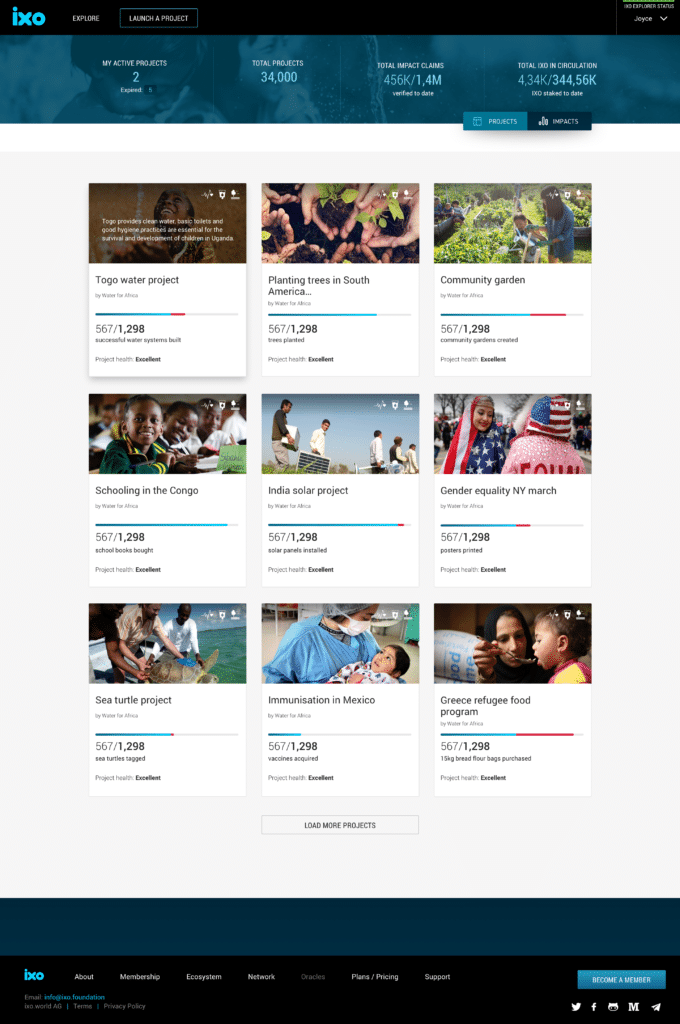
Jessica: How is blockchain technology transforming sustainable development? Could you give us an example of a successful project you implemented?
Shaun: The UN’s sustainable development goals (SDGs) are based on a framework of rights. These include the right to enjoy good health, the right to have access to clean water, gender equality, and so on. Cryptographic tokens work like digital rights. They include right of access, right of use, and right of ownership. These have the potential to change society by distributing rights more fairly and enabling more people to participate in the impact economy. Blockchain technology brings together verified information and economic incentives for people to do things in a better way such that the impact on society is more sustainable and more effective.
ixo’s utility has been demonstrated in South Africa through a project called Amply. Amply is a digital application based on ixo technology that enables organizations providing development services during early childhood to track school attendance. The app replaces paper-based school registration systems. It is subject to a government-funded pre-school subsidy and uses blockchain technology to ensure data is captured and stored accurately and securely. Amply, currently at the proof of concept stage, is UNICEF’s first blockchain investment. Since November 2016, it has been used to log the attendance of more than 3,000 schoolchildren, recording nearly 85,000 school registrations across 80 education centers.
Jessica: Thank you for the interview, Shaun!
Meet ixo Foundation at the new.New Festival 2018this fall, in Stuttgart!



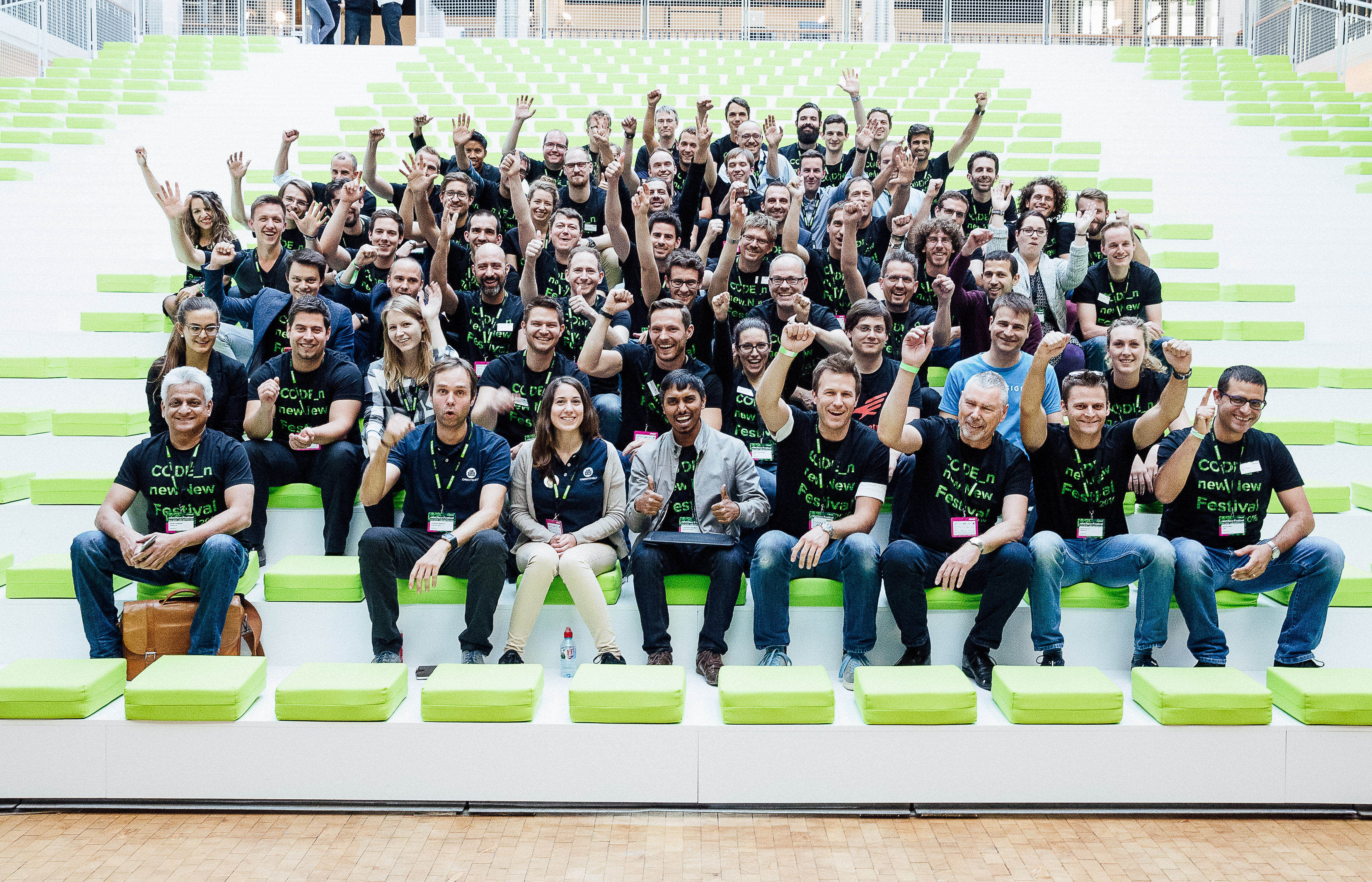
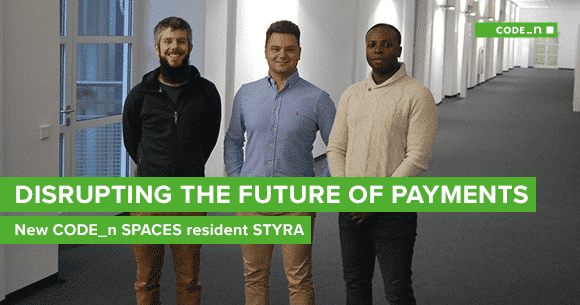

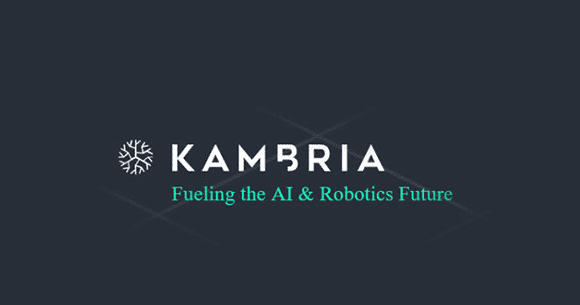
Write a comment